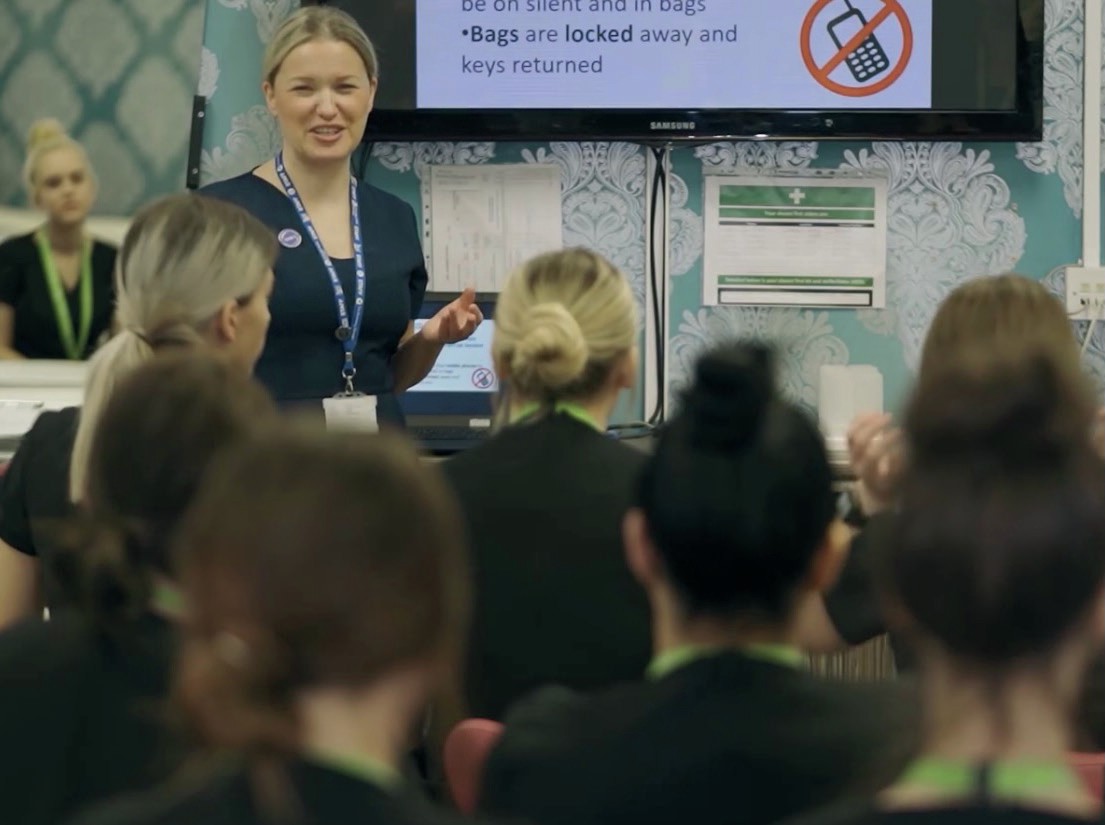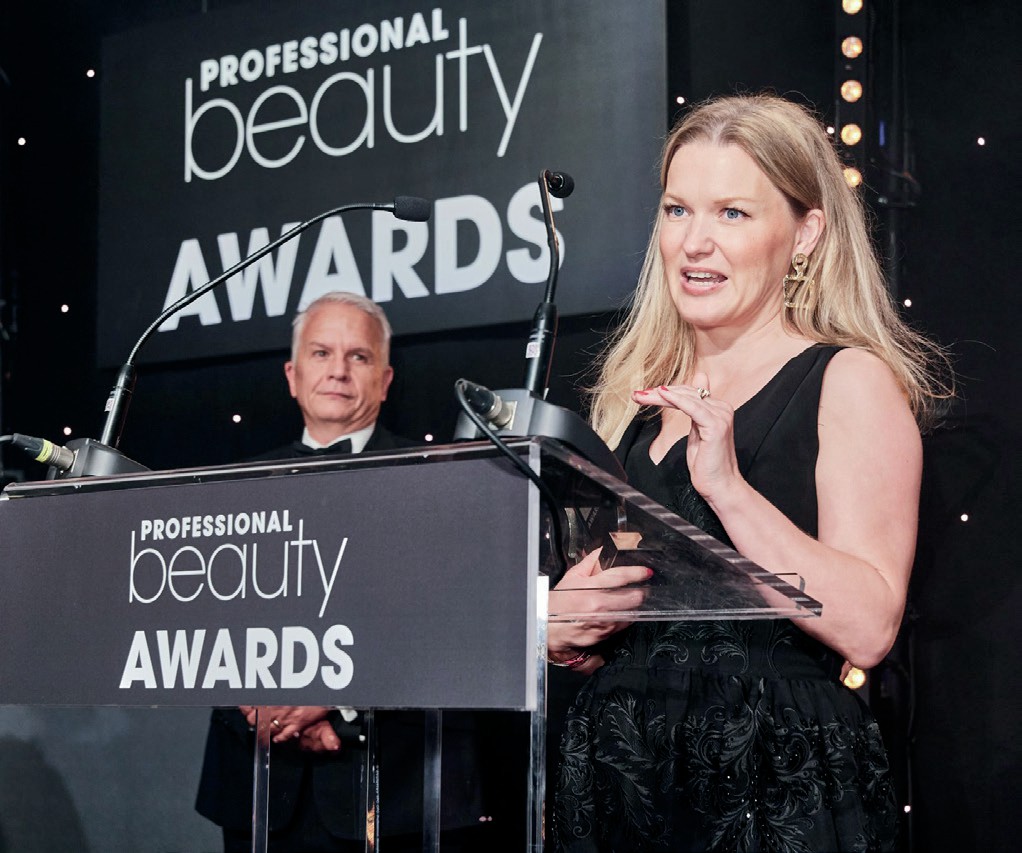How to make it as a beauty educator

With almost three decades in the beauty industry, Gillian Jackson has built up a wealth of experience which allows her to wear many different hats.
While balancing a beauty salon and her self-employed semi-permanent make-up business with getting her master’s degree and family life, Jackson has also devoted much of her time to training up the beauty therapists of the future.
“I always intended to become an educator because I had really good teachers at college who I respected and admired,” she says. “However, I wasn’t very confident when I left college – I was shy and didn’t like public speaking. So, I knew that it would be a bit more of a journey for me to get there.
“I’ve had loads of good job opportunities, I’ve worked all over the world as a therapist, and really knowing my trade gave me the confidence to move into training and then eventually into mainstream education.”
Of course, with 18 years as an educator under her belt, Jackson’s approach to teaching has changed with the times. She explains, “I was stricter when I started but people evolve, and the teenagers I’m dealing with now are very different to the teenagers I was dealing with 18 years ago. The methods we use are different. It’s not a dictatorship – it’s not chalk and talk anymore. We’re very involved with the learners, and the sessions are very learner-led.”
Using social media in beauty training
Involvement with the learners isn’t the only way Jackson has adapted her teaching style in recent years. She’s currently in the process of building up her social media accounts as a way of providing extra resources to her learners, with particular focus on TikTok.
“I want to be current and to be in the places where my learners are consuming information, and TikTok is one of those places,” she explains. “When we were in lockdown, I had a chance to get into it. I started off with some make-up looks and I was using them as home-learning tutorials for our make-up learners.”
When lockdown ended, Jackson stopped posting on her TikTok account – but the return to face-to-face education helped her realise it can still be a valuable tool. “It occurred to me months later when I was watching my students that they’re always on their phones during breaks, and they love TikTok. It’s a great forum to appeal to my learners, and I think social media is amazing for that because it can reach everywhere and there’s no cost involved.”
As to whether more trainers and educators should embrace social media, Jackson says, “I think we have to acknowledge that it’s how people consume information now. It’s about matching what your market is to the social media that’s relevant to them. You just have to be brave and put yourself out there – people will relate to you more on a human level if they can get to know you through social media.”
Inclusivity in beauty education
Making beauty training accessible to people from a variety of backgrounds is something that Jackson is especially passionate about, with the majority of her career as an educator being spent in government-funded colleges. However, she does acknowledge that private training is of great value, both to the industry and to the learners who access it.
When it comes to the importance of providing access routes to learners for whom private education might not be an option, she says, “We want to encourage the best talent into this industry that we can possibly get, and that is going to come from all different walks of life. I find that some of my students who have the least resources are the most determined to make a success of themselves and dedicate themselves to the industry.”
As both an educator and a beauty business owner, Jackson has a unique perspective on the current recruitment crisis. While her students are benefitting from the high demand for therapists, she understands business owners’ difficulty in recruiting the right staff members. However, she believes that closer relationships between employers and education establishments will go some way to aiding in recruitment.
Jackson explains, “There are ways that businesses can make that contact with learners and that is to reach out to your training providers, whether they’re private or government-funded – go to your local area and be involved in the conversation, because if you aren’t then other people will be.
“It’s not a short-term fix – there isn’t one,” she continues. “It’s long term, and if you build your relationship up with your college and training providers in your area, you won’t have to worry about recruitment because the therapists will know who you are, and they’ll come to you.”
This situation would also benefit education establishments. “We would love the support of industry to reinforce the conversations that we’re having with our learners. As a business owner I know that time is a real issue and it can feel like another job to do, but it can be just one hour a year. Come into college and spend one hour talking to our learners about your journey, or a particular treatment you love, or the importance of maintaining standards.
“It’s a win-win situation because the learners will become familiar with you and want to be employed by you. Everybody wants the best therapist, and the best therapist is going to be a different person for every business, so you need to come and meet them and see who they are. You might not necessarily want to invest in somebody straight from college, but you can plant the seed.”
Trends in the beauty industry
After spending her entire working life in the beauty industry, Jackson is still as passionate about it as ever. She comments, “I’ve never been bored and I’m coming up to nearly three decades of working as a beauty therapist. It’s always kept me on my toes – there’s always a new treatment or technique and I’m always learning something new.
"I’m within my comfort zone being in the beauty industry because I feel safe, it’s where I’ve always been, but there’s enough challenge to keep me interested.”
Her love for the industry comes from its variety, and this is something she passes on to her learners – along with the knowledge that having a strong foundation is important to longevity in the market.
“There is something for everyone. You start off learning the basics but once you qualify, it’s up to you to make the career that you want happen. It might be that you’re really passionate about brows and you don’t care about anything else, but it’s good to have that foundation because you might be in the industry for 30 or 40 years like me and you may want to change.”
Jackson adds, “When I started as a therapist, I loved body treatments and they were all I wanted to do, but as my career has gone on, I’ve been really passionate in other areas, and I needed that foundation to have that flexibility and open up my options.”
Jackson’s commitment to education and raising the standards of the beauty industry’s next generation was rewarded at this year’s Professional Beauty Awards, where she won Educator of the Year.
How to win a Professional Beauty award
Commenting on her success, Jackson says, “I was already celebrating getting to the final six because I was in such good company with people I really respect. I didn’t expect to win, so it was quite humbling. It was a really nice celebration, and it was lovely to be recognised, both for myself and for the team I work with at Grimsby.”
Following her win, Jackson is focusing on her mission to form a more cohesive relationship between educators and beauty businesses. “I’m on a real drive to get employers more involved with training establishments because I feel that in recent years there’s been a real disconnect, but it’s so much easier if we work together and collaborate,” she says.





